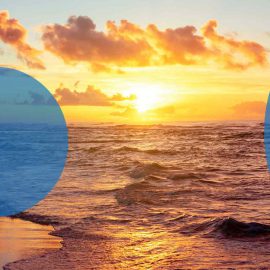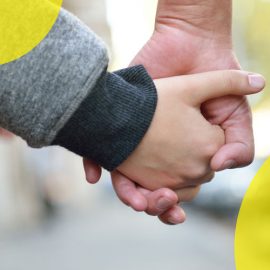Medical Cannabis and Anxiety: Addressing Misconceptions
Millions of people in Canada and around the world have had their lives upended by the ongoing public health crisis. For many, the impact of social isolation, economic uncertainty and other stressors linked to the pandemic have heightened feelings of anxiety, depression and trauma.
During this unprecedented crisis, Mental Health Week offers an important opportunity to discuss misconceptions and taboos surrounding medical cannabis and mental health, particularly in the context of the growing popularity, evolving access and new regulatory frameworks.
Indeed, healthcare professionals and their patients are increasingly turning to medical cannabis as a possible option when conventional approaches to treating anxiety have proven ineffective.
Yet the use of medical cannabis as a mental health treatment is particularly complex, and high-quality clinical evidence is still limited and sometimes conflicting. Treatments are also often poorly understood by patients, some of whom have unrealistic expectations about possible therapeutic benefits.
THE IMPORTANCE OF SUPPORT AND SUPERVISION
In Santé Cannabis’ own experience, the effects of cannabinoids are highly individualized. Clinical approaches to different mental health conditions also each rely on very specific cannabis compounds, dosages and administration methods.
The integration of individualized education and supervised access to cannabinoid treatments is crucial to ensure that patients struggling to find effective treatments receive the support they need to make safe and informed decisions.
In regulatory environments like Canada and some U.S. states, where cannabis is legal and readily available, integration into healthcare models can help mitigate the risks of unsupervised use.
Any decision to use medical cannabis to treat a mental health condition should be taken in conjunction with the close support of a healthcare professional and a mental health expert.
SUFFERING ANXIETY? YOU’RE NOT ALONE
According to a 2016 Canadian Public Health Agency study, more than three and a half million Canadians are believed to live with anxiety or a mood disorder. Anxiety disorders encompass a range of conditions, including generalized anxiety disorder, social anxiety disorder, specific phobias and other conditions characterized by significant feelings of anxiety and fear.
While cognitive behavioural therapy or psychotherapy are often recommended as non-pharmaceutical treatment options, only about 20% of Canadians with anxiety or mood disorders report having undergone psychological counselling to help manage their condition. In contrast, more than 90% report using or having used prescription medication to treat their disorder.
Serotonin inhibitors, conventional anxiolytic medication like benzodiazepine and antidepressants are the most commonly prescribed pharmaceutical treatment for anxiety. Although these treatments have proven efficient, undesired and adverse side effects are often reported from their use.
When patients do not respond well to these pharmaceutical treatments, the medical use of cannabidiol (CBD) products can be a safe alternative worth exploring.
CBD AS A COMPLEMENTARY TREATMENT: DESIGNING TREATMENT PLANS WITH SANTÉ CANNABIS
The tolerability and generally good safety profile of CBD, as well as its demonstrated effectiveness as an anxiolytic have made it the cannabinoid of choice to treat anxiety.[i] After assessment of medical history, pharmacological and non-pharmacological interventions and screening for potential risk factors, patient treatments for anxiety at Sante Cannabis are usually initiated with ingestible CBD oils, administered with a drop counter, in capsules or a spray.
In case of acute anxiety symptoms or panic attacks, the use of sublingual sprays or the inhalation of dried flowers or extract with a vapourizer are recommended for their rapid onset of action, which occurs in seconds or minutes. The onset of effects from ingestion, on the other hand, can take anywhere between one to two hours.
Medical cannabis treatments start with low doses but slowly increase during a titration period. Quebec physicians who want to learn more about dosages, titration recommendations and methods of administration can sign up to the Sante Cannabis Prescriber Training Program for convenient online access to clinical guidelines, education material and support.
WHAT ABOUT THC?
For some patients, small doses of THC have proven effective to counter anxiety attacks. The biphasic nature of cannabinoids is important to consider here: THC in small doses has shown anxiolytic properties, but larger doses of THC may induce or worsen anxiety. [ii] Patients who are inexperienced with cannabis should introduce THC slowly to avoid possible adverse effects.
WHEN IS MEDICAL CANNABIS THE RIGHT TREATMENT FOR ANXIETY?
Most of our patients with anxiety are referred by their psychiatrists directly or their family doctor. When assessing a patient’s file, our staff ensures that first line medications have been tried and that the patient has consulted a mental health professional.
It’s important to differentiate generalized anxiety from regular anxiety. Regular anxiety is a normal adaptation reaction to stress and is transitory, with a source that can often be identified. In the case of generalized anxiety, on the other hand, the source of the patient’s fear is diffuse.
In cases where medical cannabis may be an option for treating anxiety, patients should view their treatment as just one tool among many, including psychotherapy and lifestyle changes, that can help manage their mental health. Combined with this holistic approach, medical cannabis can be an empowering option for patients with difficult to treat anxiety and help them take action on the entire lifestyle spectrum, from sleep hygiene and exercise to diet and meditation.
[i] Turna J, Simpson W, Patterson B, Lucas P, Van Ameringen M. Cannabis use behaviors and prevalence of anxiety and depressive symptoms in a cohort of Canadian medicinal cannabis users. J Psychiatr Res [Internet]. 2019 Apr 1 [cited 2019 Mar 4];111:134–9. Available from: http://www.sciencedirect.com/science/article/pii/S0022395618304783
Zuardi AW, Rodrigues NP, Silva AL, Bernardo SA, Hallak JE, Guimar.es FS, et al. Inverted Ushaped dose-response curve of the anxiolytic effect of cannabidiol during public speaking in real life. Front Pharmacol. 2017;8:259.
Crippa, JA, Derenusson, GN, Ferrari TB, Wichert-Ana L, Duran FL, Martin-Santos R, et al. Neural basis of anxiolytic effects of cannabidiol (CBD) in generalized social anxiety disorder- a preliminary report. J Psychopharmacol [Internet]. 2011 [cited 2019 Aug 19]; Available from: https://www.theroc.us/researchlibrary/Neural%20basis%20of%20anxiolytic%20effects%20of%20cannabidiol%20(CBD)%20in%20generalized%20social%20anxiety%20disorder-%20a%20preliminary%20report.pdf
Bergamaschi MM, Queiroz RHC, Chagas MHN, de Oliveira DCG, De Martinis BS, Kapczinski F, et al. Cannabidiol reduces the anxiety induced by simulated public speaking in treatment-na.ve social phobia patients. Neuropsychopharmacol Off Publ Am Coll Neuropsychopharmacol. 2011 May;36(6):1219–26.
[ii] Fusar-Poli P, Crippa JA, Bhattacharyya S, Borgwardt SJ, Allen P, Martin-Santos R, et al. Distinct effects of {delta}9-tetrahydrocannabinol and cannabidiol on neural activation during emotional processing. Arch Gen Psychiatry. 2009 Jan;66(1):95–105.



